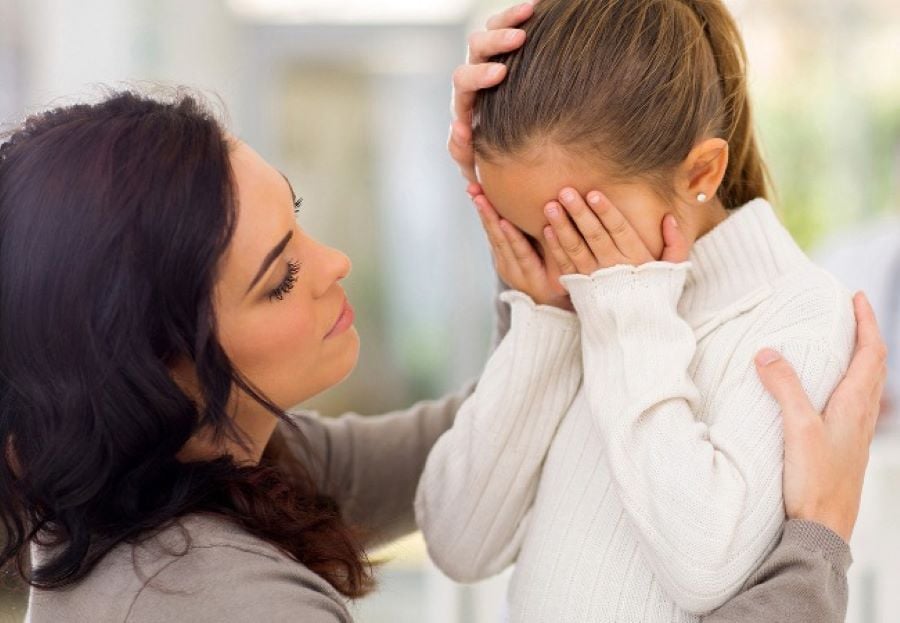 Source: bing.com
Source: bing.comAs parents, we want to do everything we can to ensure that our children grow up happy, healthy, and well-adjusted. One of the most important factors in a child’s development is the emotional environment in which they grow up. Babies are incredibly sensitive to their parents’ emotions, and their early experiences can have a profound impact on their long-term well-being.
Table of Contents
How Do Babies Experience Emotions?
Babies experience emotions in much the same way that adults do. They have the same range of emotions, including joy, sadness, anger, and fear. However, because they lack the ability to communicate their feelings through language, they express themselves through other means, such as crying, facial expressions, and body language.
Babies are also highly attuned to the emotions of those around them. They are particularly sensitive to the emotions of their primary caregivers, usually their mother and father. This is because they spend most of their time with these individuals and rely on them for their basic needs, such as food, comfort, and safety.
How Do Parents’ Emotions Affect Their Babies?
Parents’ emotions can have a significant impact on their babies’ emotional well-being. When parents are happy and relaxed, their babies tend to be more content and relaxed as well. Conversely, when parents are stressed, anxious, or upset, their babies are more likely to be fussy, irritable, and difficult to soothe.
In addition to affecting their immediate emotional state, parents’ emotions can also have a long-term impact on their babies’ development. Research has shown that babies who grow up in a positive emotional environment are more likely to develop secure attachment styles, which are associated with better mental health, stronger relationships, and better overall well-being later in life.
How Can Parents Create a Positive Emotional Environment?
Creating a positive emotional environment for your baby starts with taking care of your own emotional needs. This means getting enough sleep, eating a healthy diet, and taking time to relax and recharge. It also means taking steps to manage stress and anxiety, such as practicing mindfulness, seeking support from friends and family, or talking to a mental health professional.
Another important factor is building a strong relationship with your baby. This means spending quality time together, responding to your baby’s cues and needs, and creating a sense of safety and security. It also means being present and engaged when you are with your baby, rather than distracted by work, technology, or other demands.
What Are Some Signs That Your Baby Is Emotionally Unstable?
While all babies experience some level of emotional instability from time to time, there are some signs that may indicate that your baby is struggling more than usual. These include:
- Frequent crying or fussiness
- Difficulty sleeping or eating
- Lack of interest in playing or engaging with others
- Withdrawal or avoidance of eye contact
- Excessive clinginess or neediness
If you notice any of these signs, it may be a sign that your baby is struggling with their emotional well-being. It’s important to seek support from your pediatrician or a mental health professional who can help you identify the underlying causes and develop a plan for addressing them.
Conclusion
In conclusion, babies are highly sensitive to their parents’ emotions and the emotional environment in which they grow up can have a profound impact on their long-term well-being. As parents, it’s important to take steps to create a positive emotional environment for your baby by taking care of your own emotional needs, building a strong relationship with your baby, and seeking support when you need it. By doing so, you can help your baby develop the emotional resilience and well-being they need to thrive.
Frequently Asked Questions
Q: How early can babies sense emotions?
A: Babies can sense emotions from before they are born, but they become more attuned to their parents’ emotions in the first few months of life.
Q: Can a baby’s emotional instability be cured?
A: While there is no “cure” for emotional instability, there are steps that parents can take to help their baby develop emotional resilience and well-being.
Q: Can a baby’s emotional well-being affect their physical health?
A: Yes, research has shown that a baby’s emotional well-being can have a significant impact on their physical health, including their immune function, digestion, and overall growth and development.
Q: What can parents do to help their babies develop emotional resilience?
A: Parents can help their babies develop emotional resilience by creating a positive emotional environment, building a strong relationship, and seeking support when needed.
Q: What are some signs that a parent is struggling with their own emotional well-being?
A: Some signs that a parent may be struggling with their own emotional well-being include irritability, mood swings, difficulty sleeping or eating, and feelings of sadness or anxiety.
